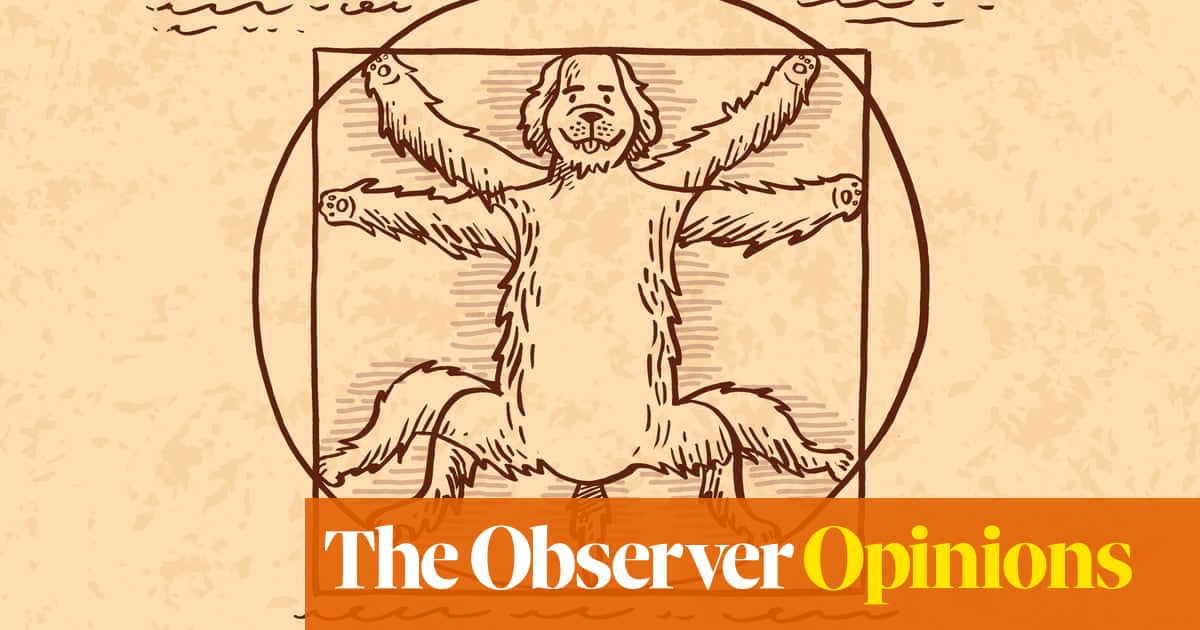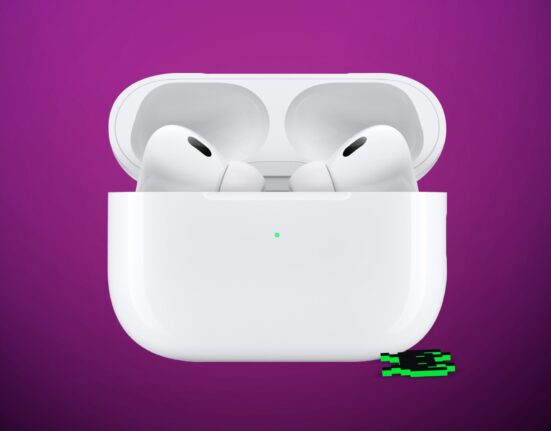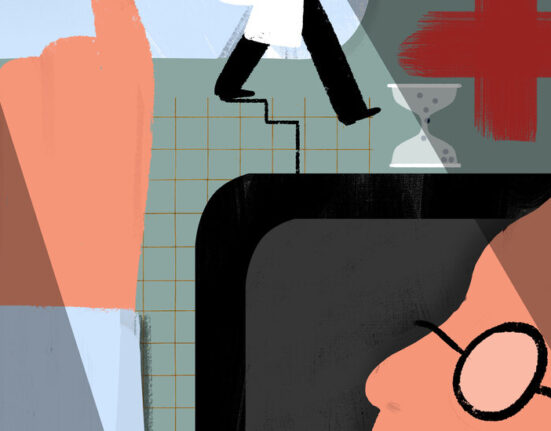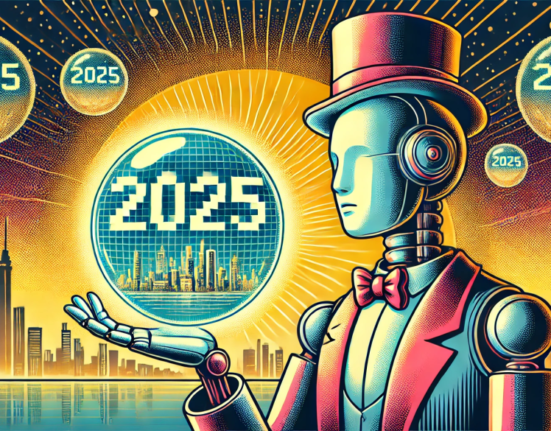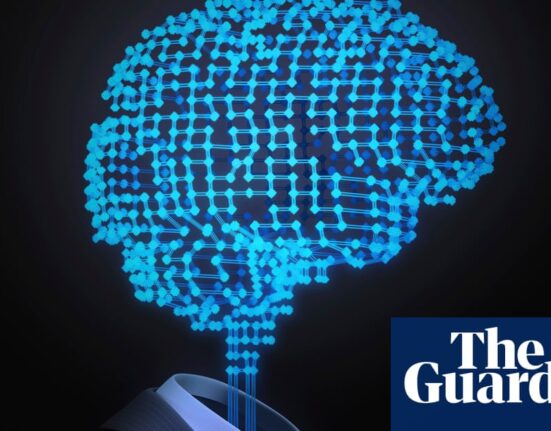The details differ, but really it’s the same story, turning up every few weeks, for around a decade now. The revelation – and it’s always presented with a dramatic flourish – is this: animals are much more like us than we thought.
Last week, it was that dogs could remember the names of their old toys – even when they hadn’t seen them for two years. Language acquisition, that “uniquely human” thing, was being encroached on, the researchers said: dogs could store words in their memory. Last month, it was that horses could strategise and plan ahead, overturning the assumption that they “simply respond to stimuli in the moment”. And in April, it was that there’s a “realistic possibility of consciousness” in reptiles, fish and even insects – according to a declaration signed by some 40 scientists. One of the studies backing the claims recorded bumblebees playing with wooden balls. The behaviour had no obvious connection to mating or survival, the authors thought. It was for fun.
The mental territory we can claim to be “uniquely human” is shrinking at an alarming rate. Wasps can distinguish faces, dolphins call one another by name, pigs use tools, zebra finches dream, parrots go on Zoom, and sometimes crayfish get anxious. Chimps, meanwhile, exist in complex cultures, rather like ours, with fashion trends. In one recorded instance, a high-ranking female chimp started wearing grass in her ears. Within a week, all the female chimps were doing it.
Does this seem obvious? It did to Darwin, who, along with other naturalists, once assumed that animals, like us, were individuals with some form of consciousness. “Can we feel sure that an old dog with an excellent memory and some power of imagination, as shewn by his dreams, never reflects on his past pleasures of the chase?” he wrote in The Descent of Man.
But Darwin’s successors were more sceptical, and at the start of the 20th century came a chorus of demands for hard evidence for this point of view. Opinion changed, and “anthropomorphism” became a sin in the natural sciences. For many scientists, it is still a word that means you’ve made a mistake – you’re guilty of sentimentality and intellectual failure.
This piece of wisdom has filtered outwards from academia to policymaking, and to the general public. The idea that assigning human motivation to animals is a stupid thing to do is deeply ingrained in us. In a recent article in Psychology Today, the author frets that children are being taught to anthropomorphise, which he takes for granted is an error.
The British government only recognised animal sentience in law in 2021. But the more we find out about our fellow creatures, the more the evidence is swinging behind devoted dog owners, Beatrix Potter readers and Disney aficionados. We might in fact be guilty of the opposite bias – stubbornly looking the other way as animals demonstrate guilt, pain, happiness and theory of mind; of overestimating ourselves and underestimating the rest of the animal kingdom. It’s revealing of scientific culture that this bias doesn’t have a common name. But the late primatologist Frans de Waal called it “anthropodenialism”.
If so, it’s an important mistake to correct. First, because there’s an obvious link between cruelty and the belief that your victims are not, like you, capable of deep suffering. It wasn’t until 1987 that the medical profession recognised that newborns could feel pain (they couldn’t tell us after all). So babies were regularly operated on without anaesthetics or any type of sedation. Mothers recorded evidence of trauma in later life – these children would shake and vomit when visiting a hospital.
De Waal has discussed a mid-20th-century experiment where chimps were denied food, but the staff at the primate centre rebelled and started feeding the animals in secret. The lead scientist bemoaned his “tender-hearted colleagues” for failing to “reduce chimpanzees to a satisfactory state of deprivation”.
If animals are more like us, it’s worth knowing – especially for those campaigning in their favour. When naturalists trying to protect elephant herds from hunters shifted from raw statistics and aerial photographs to creating elephant “celebrities” – with biographies and photographed in high-fashion style portraits – support flooded in. Kindness to animals, it seems, is often conditional on recognising that they are similar to us.
Anthropomorphism has its limits. The eccentric biologist George Romanes, who studied under Darwin, claimed to have recorded a group of rooks putting a jackdaw on trial, and a pet snake that had died of shock after his owner fell ill.
Humans anthropomorphise compulsively – we’re capable of assigning human motives to practically anything – a cloud, a missing pencil, a stubborn door. The job of science is to treat such instincts with scepticism, and to proceed only on the basis on evidence. But the evidence is mounting in the other direction. Which might be why biologists become more, rather than less, likely to anthropomorphise their subjects as they gain experience.
after newsletter promotion
As our instincts to anthropomorphise clash with our beliefs that we shouldn’t, we should be cautious about another kind of bias. We end up empathising only with the animals we know well, such as our pets. At the height on anthropodenialism, in the 19th century, experiments on dogs triggered huge protests by anti-cruelty leagues, but the fate of other animals attracted little interest.
This hierarchy of cuteness persists. We have a surfeit of laws against pet cruelty, but continue to treat farm animals badly. Earlier this year, footage at a Devon farm showed pigs kept in filthy conditions with untreated wounds, reduced to cannibalism to survive. Last month, the BBC found a rise in “megafarms”, where cows can be kept indoors for the whole of their lives.
It’s not just dogs and cats that deserve our empathy. Animals are much more like us than we thought.



